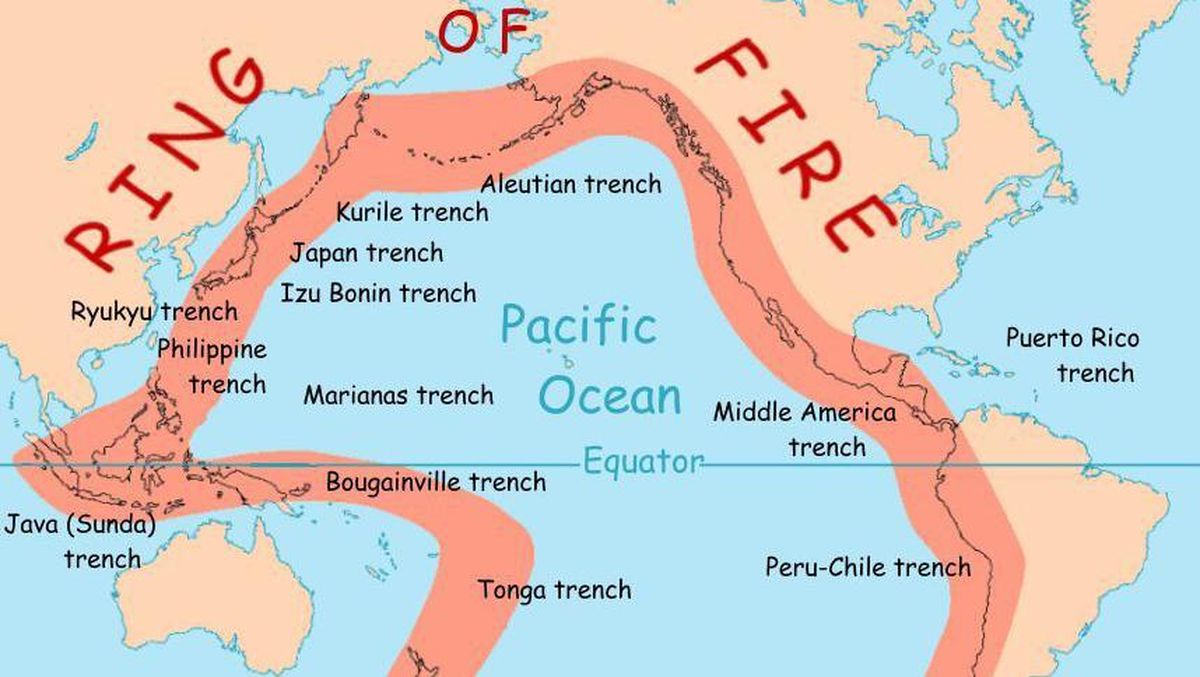Recent Earthquakes in Bali: A Wake-Up Call
If you're living in or visiting Bali, you're probably aware of the recent earthquakes that have hit the island. The tremors may have been a gentle reminder or a harsh wake-up call, but one thing is certain - it's essential to understand the risks and be prepared for the unexpected.
Why Bali is a Hotspot for Earthquakes
Bali is located in a seismically active region, where the Eurasian and Australian tectonic plates meet. This collision of plates creates a perfect storm of earthquake activity, making Bali a hotspot for seismic events. But that's not all - the island is also home to several active volcanoes, including the infamous Mount Agung, which adds to the earthquake risk.
Indonesia's Ring of Fire: A Zone of High Seismic Activity
Indonesia is located in the Pacific Ring of Fire, a 40,000 km (25,000 miles) horseshoe-shaped zone of intense seismic and volcanic activity that stretches from New Zealand, along the eastern edge of Asia, through the Philippines, Japan, and the Aleutian Islands, and down the western coast of North and South America. This region is home to over 75% of the world's active volcanoes and experiences 90% of the world's largest earthquakes.

What is the Ring of Fire?
The Ring of Fire is a zone of high seismic activity caused by the movement of several tectonic plates, including the Pacific Plate, the Eurasian Plate, and the Australian Plate. These plates are constantly moving, sometimes sliding past each other, and sometimes colliding, which can cause earthquakes and volcanic eruptions.
How does the Ring of Fire affect Indonesia?
Indonesia is located at the intersection of four tectonic plates, making it one of the most seismically active countries in the world. The country is home to over 130 active volcanoes, with around 50 eruptions occurring in the past 100 years. The Ring of Fire also makes Indonesia prone to powerful earthquakes, including the devastating 2004 Sumatran earthquake and tsunami that killed over 230,000 people in 14 countries.

The Science Behind Bali's Earthquakes
So, what exactly is happening beneath our feet? Here's a simplified explanation:
- Subduction zone: The Australian plate is being pushed beneath the Eurasian plate at a rate of about 6-7 cm/year. This process can cause earthquakes as the plates interact.
- Volcanic activity: Bali's volcanoes are a result of the subduction process, and their activity can contribute to earthquake activity.
- Fault lines: Bali has several fault lines, including the Balinese Fault Zone, which runs across the island. Movement along these faults can cause earthquakes.
Don't Wait for the Next Big One: Prepare Now!
While earthquakes can be unpredictable, there are steps you can take to minimize risks and stay safe:
- Create an Emergency Kit: Assemble a kit with essentials like water, non-perishable food, first aid supplies, and a battery-powered radio. Don't forget to check it regularly!
- Know Your Evacuation Routes: Familiarize yourself with evacuation routes and emergency shelters. Make sure you have a plan in place!
- Secure Your Home: Ensure your home is earthquake-resistant by safely securing heavy furniture, hanging objects, and storing flammable liquids. A few simple steps can make a big difference!
- Stay Informed: Sign up for emergency alerts and follow local news to stay updated on earthquake activity. Stay ahead of the game!
- Practice Earthquake Drills: Conduct regular earthquake drills with your family to ensure everyone knows what to do in case of an earthquake. Practice makes perfect!
- Stay Calm and Prepared During an Earthquake:
- Drop, Cover, and Hold On: immediately drop to the ground, take cover under a sturdy piece of furniture, and hold onto it to protect yourself from falling debris.
- Stay away from windows, mirrors, and any heavy furniture that could fall on you.
- If you're in a coastal area, be aware of tsunami warnings and evacuate immediately if instructed.
You're Not Alone: Resources to Help You Prepare
- Indonesian Meteorological, Climatological and Geophysical Agency (BMKG): www.bmkg.go.id
- Bali Provincial Disaster Management Agency (BPBD): www.bpbd.baliprov.go.id
Share Your Thoughts and Experiences!
Have you experienced an earthquake in Bali? What did you do to prepare? Share your stories.
You can add one right now!